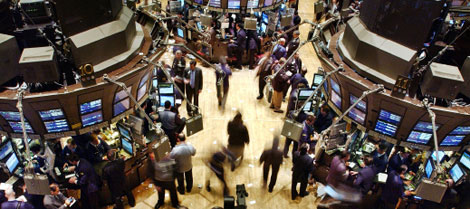Given the big role that stock buybacks play in sustaining rallies and driving stock prices higher, news in earnings reports this past week that both Citigroup (C) and JPMorgan Chase (JPM) are suspending their stock buyback programs is a big deal. Not just for these big banks or for the banking sector, but also for stocks as a whole.
After a huge drop in buybacks in 2020 thanks to the Pandemic recession, buybacks for the companies in the Standard & Poor’s 500 roared back in 2021 to hit a new record of more than $850 billion. That easily broke the old record of $806 billion set in 2018.
Buybacks support stock prices in two ways.
First, companies purchasing their own shares add another buyer to the market. This “buyer” tends to be relatively price insensitive too. Companies buy when their stock is trading at a high price. (Witness the $234 billion in buybacks in the third quarter of 2021.) Which makes this “buyer” an important support of stocks when they rally higher. (The total market capitalization of the S&P 500 stocks was $32.53 trillion on July 16, 2022. So $850 billion in buybacks amounts to about 2.6% of the total market cap of the stocks in the index.)
Second, buybacks boost earnings per share. When companies buy back shares, they reduce the number of shares outstanding. That means that in calculating earnings per share total earnings are divided by a smaller denominator. All other things being equal, buybacks make earnings per share and earnings growth look better. (Which is one reason that CEOs, with compensation that is often pegged to earnings growth, like buybacks.)
And there’s a third “item” to consider.
Buybacks aren’t distributed randomly among the companies in the S&P 500.
According to a story by Bob Pisani on CNBC on December 30, 2022, buybacks are concentrated in a small group of companies. The top five accounted for almost 30% of the buybacks in the third quarter. Four of the five are technology companies. In the third quarter of 2021, these buyback monsters included Apple (AAPL) at $20.4 billion, Meta Platforms (META) at $15 billion, Alphabet (GOOG) at $12.6 billion, Bank of America (BAC) at $9.9 billion, and Oracle (ORCL) at $8.8 billion.
Companies execute buybacks when their cash flows are soaring. They cut back on buybacks when the forecast cash flows are going to tighten. That makes the suspension of buybacks by JPMorgan Chase and Citigroup another negative indicator for a market–and an economy–already awash in negative indicators.


